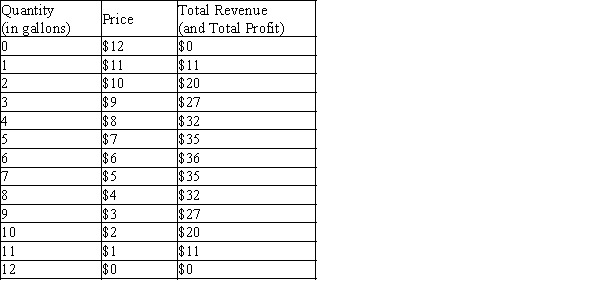Table 17-2
Imagine a small town in which only two residents, Abby and Brad, own wells that produce safe drinking water. Each week Abby and Brad work together to decide how many gallons of water to pump. They bring water to town and sell it at whatever price the market will bear. To keep things simple, suppose that Abby and Brad can pump as much water as they want without cost so that the marginal cost is zero. The weekly town demand schedule and total revenue schedule for water is shown in the table below: 
-Refer to Table 17-2. If this market for water were perfectly competitive instead of monopolistic, how many gallons of water would be produced and sold?
Definitions:
Traditional Dating
A conventional form of dating where couples meet face-to-face to get to know each other.
Contemporary Dating
Modern forms of finding romantic partners, often characterized by the use of technology, liberal attitudes towards relationships, and diverse dating practices.
Filter Theory
A theory that suggests individuals use a series of filters, such as socio-economic status or religion, to narrow down potential partners in the dating process.
Social Exchange Theory
A theoretical framework that posits social relationships are based on the exchange of resources, with the goal of maximizing benefits and minimizing costs.
Q31: Refer to Figure 18-5. The firm would
Q124: The story of the prisoners' dilemma shows
Q146: Refer to Table 17-3. Suppose the town
Q169: Monopolistically competitive firms could reduce the average
Q194: The Sherman Act made cooperative agreements<br>A)unenforceable outside
Q203: Cartels with a small number of firms
Q303: Refer to Figure 16-3. What price will
Q389: Entry of new firms in monopolistically competitive
Q596: In a monopolistically competitive industry, a firm's
Q628: Refer to Figure 16-12. If this firm